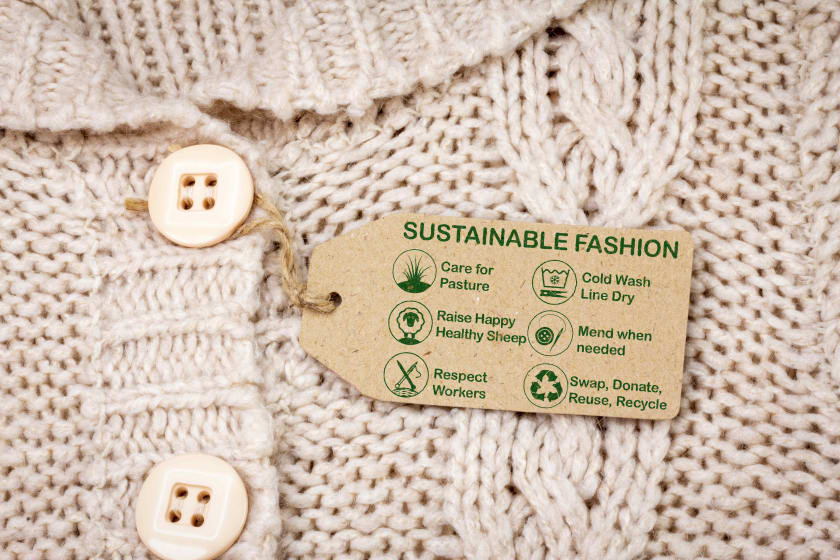Global Countdown To Fashion Industry’s Sustainability Reporting Standards



Summary: Sustainability reporting standards measure a fashion brand’s initiatives against metrics for climate action. Large corporations are already reporting their sustainable practices as part of their adherence to ESG principles. With governments in the US, EU, and UK backing legislative norms, the countdown for global reporting of sustainable practices has begun.
Sustainability reporting standards have been gathering weight ever since fashion brands started adopting carbon-neutral initiatives. These standards measure the impact of a clothing company’s efforts against established metrics for climate action to reveal if their practices are really sustainable or just greenwashing. Different agencies have come up with sustainability standards, which a clothing and apparel brand can incorporate to further its green initiative.
Once you enroll for reporting sustainability standards, your fashion label will have to make its report public. While several fashion brands are increasingly becoming sustainable, not many are reporting these standards. But this is about to change because the US and EU are mulling legislation to make such disclosure mandatory. The UK has already introduced two laws that bind companies to make their sustainability report cards public.
ESG: The Three Pillars of Sustainability and Climate Action
Environmental, Social and Governance or ESG has become a benchmark for measuring corporate accountability. The sustainability reporting standards focus on metrics that outline a clothing company’s role vis-à-vis its environmental impact, social responsibility, and ethical governance. The ESG is a very comprehensive data sheet. It can include a fashion brand’s climate action, including its carbon footprint, fair trade practices, employee health and gender equality, and privacy laws, among others. Each of these segments carries weight in determining a company’s ESG report card.

Who Decides the Sustainability Reporting Standards?
From shareholders to stakeholders, the journey of corporate management has undergone a sea change. Sustainability reporting standards evaluate a company’s performance against benchmarks for ethical corporate governance. Government-funded institutions and independent agencies that have expertise in assessing climate action incentives and social responsibility against the metrics determine the reporting standards.
Some of the prominent names in this highly skilled knowledge industry are: The Task Force on Climate-related Financial Disclosures (TCFD), CDP (Carbon Disclosure Project) and The Sustainability Accounting Standards Board (SASB). These are among the top global agencies for reporting standards, with their own environmental disclosure practices.
The Countdown has Begun for Fashion Industry’s Sustainability Reporting
- UN’s Sustainable Development Goals, 2030: The United Nations came out with the Sustainable Development Goals for 2030. The 17-point charter was unanimously adopted by all member countries. The sustainable goals outlined have to be met by the year 2030. This is one of the most comprehensive policy plans with far-reaching consequences undertaken by the UN. Many of these 17 goals are centered around the fashion industry, which is among the top five segments with maximum carbon payload, inequality in gender and labor wages, and impact on natural ecosystems. With political and industrial stakeholders enrolled in the program, fashion brands have no choice but to opt for sustainability practices and disclosures.
- Enforcement of laws for disclosure backed by political resolution: In April this year, the UK government passed two laws that make ESG reporting mandatory. By 2024, companies in the EU with more than 250 employees will have to disclose their sustainability measures. The US is not far behind. The Fashion Sustainability Act is being mauled by the New York Senate to decarbonize its energy use and make brands accountable for social responsibility. The US Securities Exchange has also proposed climate-risk disclosures for publicly listed companies. In the G7 meeting last year, the participating leaders unanimously voted for sustainability reporting standards for all member countries.
- Disclosure driven by sustainable community initiatives: Fashion brands committed to ethical corporate governance have to commit to these practices as a part of their sustainability measures. With several governments and even retail giants such as Walmart pushing for these practices, fashion brands are considering declaring them to increase transparency. Sustainable communities involve:
- Gender equality, particularly for fair wages for women
- Good health and well-being of all workers
- Clean water and sanitation for community members
- Fair trade practices that include guaranteeing minimum wages
- Responsible consumption and production to save ecosystems
- The metrics of climate action and Net-Zero targets: With several countries opting for net-zero targets by 2050, fashion brands—with their massive carbon footprint—are becoming proactive in the following sustainable measures:
- Decarbonization of energy
- Saving ecosystems
- Circularity in fashion

Their inclusive measures are already part of the metrics for the sustainability reporting standards. Most fashion brands and suppliers committed to sustainability are, therefore, adopting disclosures to improve their brand value.
Reporting Sustainability Standards Ensures Brand Transparency
Sustainability reporting standards are the benchmarks that a responsible and ethical fashion brand must adhere to. Once such standards have been adopted, a clothing and apparel brand has to make its performance report public. This ensures the transparency of the brand and enhances the trust of its stakeholders, including customers. With the UN targeting 2030 as a milestone for sustainable practices and countries like the US and UK backing mandatory sustainability reporting standards, fashion companies have to adopt them sooner rather than later.
Key Takeaways
- Now, sustainable fashion brands have to report on their practices according to reporting standards set by agencies such as TCFD, CDP and SASB (Value Reporting Foundation).
- A fashion label's sustainability must include ESG parameters that assess its role in environmental ethics, social responsibility, and governance.
When it comes to sustainable fashion, Fashinza can help you connect with trusted suppliers and options to scale up your business.
Chat with our team on https://fashinza.com for sustainable solutions in manufacturing and shipping.



















